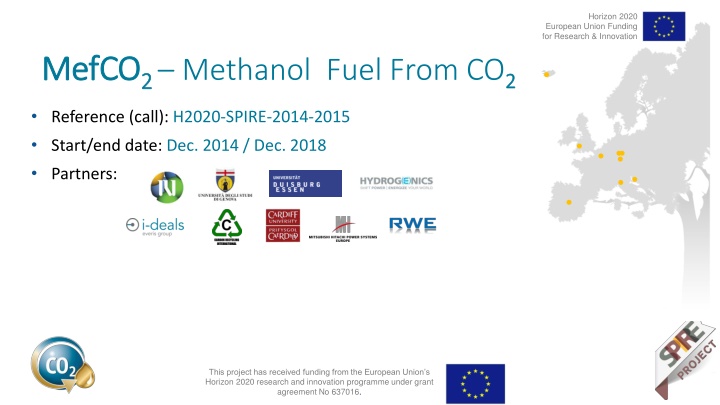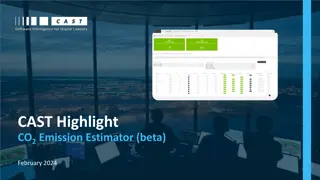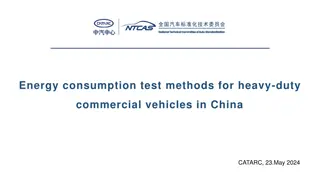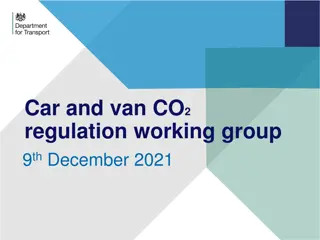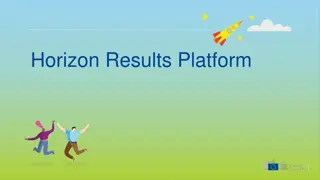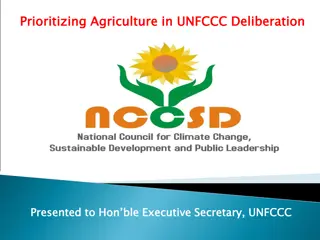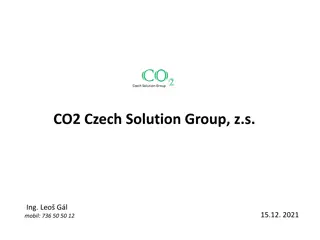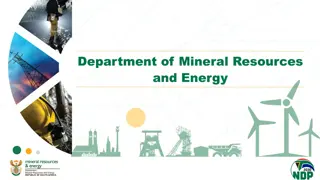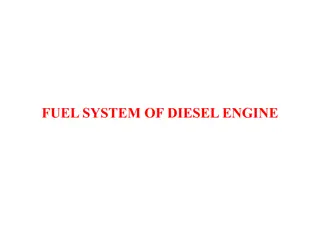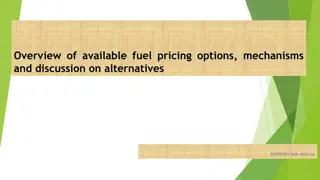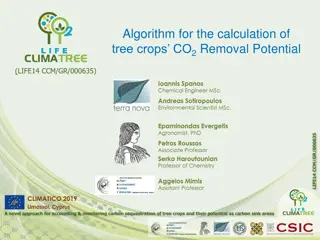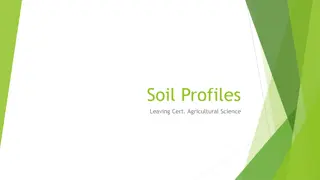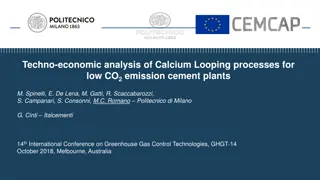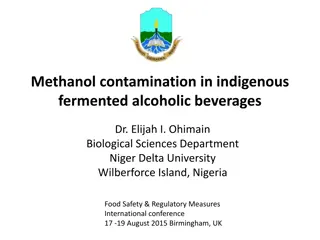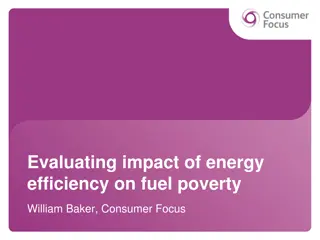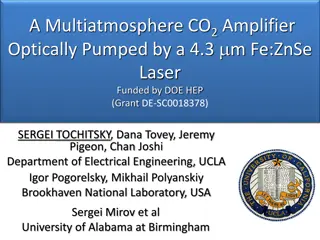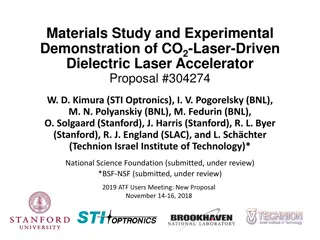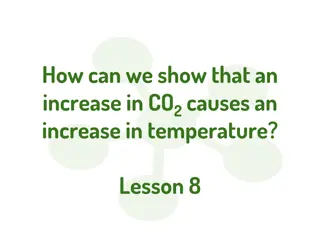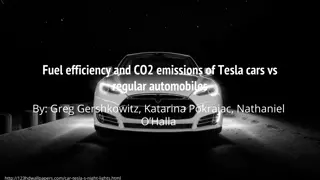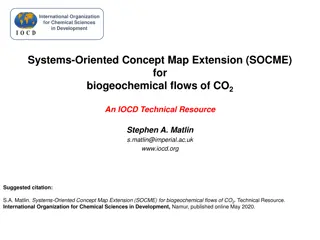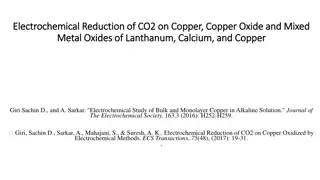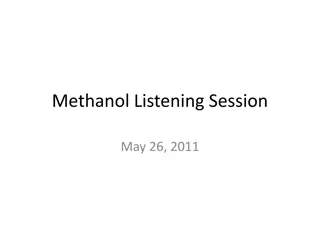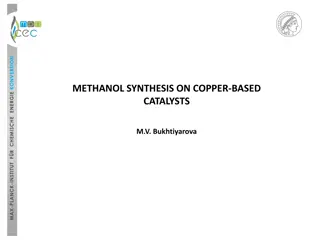Horizon 2020 MefCO2 Methanol Fuel From CO2 Project Sustainability Impacts
The Horizon 2020 MefCO2 project focuses on producing methanol fuel from CO2, aiming to reduce CO2 emissions significantly and achieve renewable energy goals. The project aims to displace fossil fuels with green chemicals and advanced fuel production, providing solutions for energy storage and grid services. Key sustainability impacts include reducing CO2 emissions, global warming potential, fossil energy intensity, and displacing fossil gasoline.
Download Presentation

Please find below an Image/Link to download the presentation.
The content on the website is provided AS IS for your information and personal use only. It may not be sold, licensed, or shared on other websites without obtaining consent from the author.If you encounter any issues during the download, it is possible that the publisher has removed the file from their server.
You are allowed to download the files provided on this website for personal or commercial use, subject to the condition that they are used lawfully. All files are the property of their respective owners.
The content on the website is provided AS IS for your information and personal use only. It may not be sold, licensed, or shared on other websites without obtaining consent from the author.
E N D
Presentation Transcript
Horizon 2020 European Union Funding for Research & Innovation MefCO MefCO2 2 Methanol Fuel From CO2 2 Reference (call): H2020-SPIRE-2014-2015 Start/end date: Dec. 2014 / Dec. 2018 Partners: This project has received funding from the European Union s Horizon 2020 research and innovation programme under grant agreement No 637016.
Horizon 2020 European Union Funding for Research & Innovation Project Case Study Project Case Study 1. The EU/ SPIRE needs 4. How will this happen? 2020 20% 20%** 20% 2030 40% 27% Min 27% *From 1990 levels 2050 80-95% - - Building up a pilot plant in Germany: Production capacity: 1t /day CO2 capture capacity per ton of MeOH: 1,5 t/d PEM electrolyser (600 kWel)withimproved dynamic response. MeOH unit: scalable production process with a novel patent protected catalyst with improved conversion and selectivity GHG reduction* Renewable energy share Efficiency increase ** 10% Renewable resources for transportation KC1 FEED: Valorisation of flue gases as alternative sources for chemicals and fuels KC2 PROCESS: New energy and resource management concepts KC3 APPLICATIONS: New materials contributing to develop energy and resource efficient processes KC4 WASTE2RESOURCE: Pilot economically and environmentally sustainable and technically feasible process models KC5 HORIZONTAL: dissemination of cross-sectorial transfer of good energy and resource efficiency solutions and practices KC6 OUTREACH: comprehensive dissemination strategy Scaling up the pilot plant for commercialization: Business cases for methanol plants of 10,000 and 50,000 t/yr 3. Value to Customers Mitigation of CO2 emissions by making a feasible business case for CCS+CCU. Stabilisation of electric grid by the consumption of the electric energy at its peaks. Methanol blending with conventional gasoline or methanol use in biodiesel production contribute to the achieving the renewable energy content and advanced fuels content in transportation. 2. The Project Solution Green chemicals (P2C) and advanced fuel production (P2F) using captured CO2 as feedstock, an energy storage technology using methanol as energy vector in liquid fuels and a test bench for the provision of grid services using flexible electrolysers
What are the key expected sustainability impacts key expected sustainability impacts of MefCO MefCO2 2? Indicator (Max 3-4 key indicators) Baseline Expected Impact Reduction of CO2 emissions of methanol as renewable fuel 34 g/MJ Emission associated with methanol fuels are expected to be below to the reference value of 1st generation biofuels (34 g/MJ) with an expected emissions well below 20 g/MJ. A more accurate value shall be provided when the LCA analysis is completed. Global Warming Potential (CO2 emission reduction) of CCU w/o CCS -- 11 Mtons/year (without CCS) if methanol production were to cover methanol imports in the EU and 3% v/v blending with gasoline is achieved. Fossil energy intensity --- Highly dependent of the energy mix in the area in which the plant is located and the mode of operation. Fossil fuel displacement when substituting fossil gasoline --- Up to 1.3% on energy basis of gasoline consumption could be displaced if 3% v/v direct blending was achieved. Horizon 2020 European Union Funding for Research & Innovation
Horizon 2020 European Union Funding for Research & Innovation What outputs or learning outputs or learning from MefCO projects here? MefCO2 2 could have value for other SPIRE Renewable hydrogen production: demonstration of flexible operation of water electrolysers can be used to decrease energy costs of renewable hydrogen production and reducing the reliance on natural gas steam reforming. Surplus Oxygen can be sold or used directly in several industrial process such as combustion processes. Optimised power plant operation when coupled with flexible hydrogen production for methanol production. Plants can be operated steadily at their maximum efficiency since flexible electrolysers can be adjusted to match supply and demand. Job preservation: CCU+CCS can help carbon leakage sensitive industries, such as the steel or cement industry, to maintain its competiveness while reducing their emissions. Growth of cost competitive non- manageable renewable energy generation will spur a new set of business opportunities for those who can build business models based integrating renewable energy surplus and stabilising the electrical grid. MefCO2 results could contribute to the reduction of the dependency on methanol imports for the chemical industry in the EU-28. An average of 5.8 Mtons where imported Jan-Nov 2016. Methanol produced in MefCO2 is considered an advanced fuel and its renewable energy content can be double counted towards the Renewable energy content in transport. Moreover, direct blending of methanol with gasoline can reduce the imports of gasoline. A 3% v/v blending with gasoline would add 2.2 Mton/year of additional methanol demand and displace up to 1 Mtoe of gasoline on an energy content basis.
Horizon 2020 European Union Funding for Research & Innovation MefCO MefCO2 2 approach approach H2 production 600 kW PEM electrolyser Niederaussen Coal fired power plant (Germany) Post-combustion CO2 amine scrubber MeOH plant Max MeOH output 1000 kg/day Max CO2 input 1500 kg/day Watch our video!
Horizon 2020 European Union Funding for Research & Innovation Contact Project coordinator and exploitation manager: Mr. David Cuesta: david.cuesta.pardo@everis.com Ms. Roc o Pacios: rocio.pacios.blein@everis.com Project website: www.mefco2.eu info@mefco2.com
